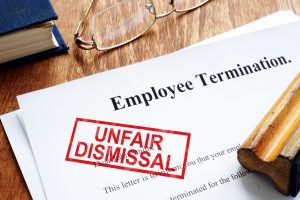Wrongful termination arises when a worker is fired or laid off for an incorrect or unlawful reason. There are certain reasons for wrongful termination that are more common than others. Read on to learn what they are and then contact PLBH at (800) 435-7542 if you have been fired for one of these reasons and require a free legal consultation with an experienced employment law attorney.
As Retaliation for Making a Workers Compensation Claim
The laws governing workers’ compensation vary from state to state. Nonetheless, they all shield workers from retribution for filing for workers’ comp. If workers were not protected from this form of retribution, they would never petition for workers’ compensation. Any employee who suffered injury may be fired by their employer, who would then hire a new employee to take their place. The working environment would worsen as a result.
But it is normally up to you to prove that the termination was tied to your workers’ comp claim. In some areas, such as California, it is illegal for employers to dismiss an employee for requesting workers’ compensation benefits. Employers who take this action may also face monetary fines.
As Retaliation for Whistleblowing
It may be considered wrongful termination if your company fired you for being a whistleblower if you alert authorities to possible violations of federal or state laws, rules, or considerations of public policy. Numerous federal statutes provide particular whistleblower protections in certain instances, such as the Sarbanes-Oxley Act and the Dodd-Frank Wall Street Reform and Consumer Protection Act.
You are covered when you disclose your suspicions to law enforcement on the municipal, state, or federal levels, as well as your manager or someone else working for the business, like the human resources division.
It’s important to note that your fears do not have to be confirmed. You are a whistleblower, and entitled to whistleblower protections, if you reasonably thought, in good faith, that your employer was committing malfeasance.
Whistleblower retaliation may occur if your company dismisses you or takes some unfavorable action against you. A lawsuit for wrongful termination may be appropriate in this situation. An employment attorney can assist you use your legal rights in these situations.
Your Firing Was a Form of Discrimination
You may have a wrongful termination claim if you were fired for a discriminatory reason. This includes retaliating against you for opposing workplace discrimination or harassment, including sexual harassment.
Title VII of the Civil Rights Act of 1964 is the federal statute that prevents employers from firing workers because they are in a protected class. Some protected classes include race, color, religion, sex, gender, gender identity, sexual orientation, pregnancy, national origin, medical condition, and numerous other factors. If your employer fired you because you had one of these protected features, it may have been a wrongful termination.
In addition, Section VII gives you legal protection if you participate in a lawsuit or an inquiry about harassment or discrimination, file a harassment or discrimination complaint, or speak out against discrimination or harassment that has, for example, produced a toxic work environment.
Before bringing a lawsuit for job discrimination or unlawful termination, you must typically make a claim with the Equal Employment Opportunity Commission (EEOC). Your employee rights can be explained to you by an employment attorney. Contact PLBH at (800) 435-7542 now for a free legal consultation.

